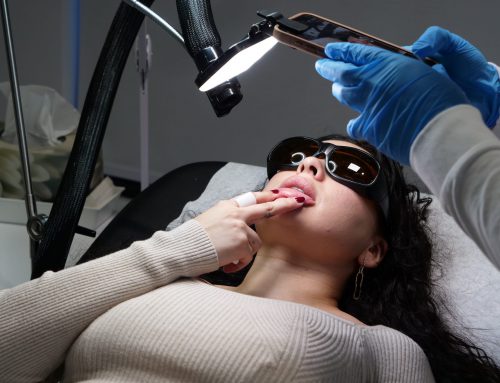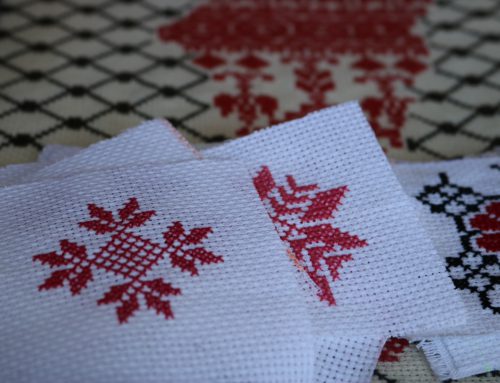BY Alessia Proietti & Victoria Blair
Sitting on the couch, Bria Shannon Telesford stirs with a plastic spoon a luxuriously thick, smooth, glossy red mixture. Meanwhile, Alana Duprey grabs the Kitchen-Aid mixer, the bowl filled with mango butter and a splash of vanilla, and begins to whip the ingredients. They aren’t cooking. They’re making lip gloss and body butter—cosmetic products for their business CocoaGlow.
Salons closed for months during the pandemic, but the beauty industry didn’t shut down. Some of it moved to private homes. New online businesses have been created by small companies selling homemade cosmetics.
“We had spoken about random businesses we wanted to start in our parent’s country,” says Duprey. Telesford pitched the idea for a lip gloss business to her while they were shopping at a dollar store.
Their family is from Grenada and they noticed that many North American cosmetics were filled with harsh chemicals or falsely labelled as “natural.”
“In a lot of cultures that’s where it starts off, holistic ingredients like shea butter because they don’t really have access to all the medicines with chemicals, so you make do with what you have,” says Telesford.
From Duprey’s home basement, they create body butters, lip oils, scrubs, and glosses using ingredients like shea butter, chamomile buds and sea salt.
These women are not the only ones supplying the demand for cosmetics. Small online businesses have been emerging for press-on nails, exfoliation masks and sponges, and lash extensions among other products, making sales on websites and social media platforms like Facebook, Instagram, and Etsy.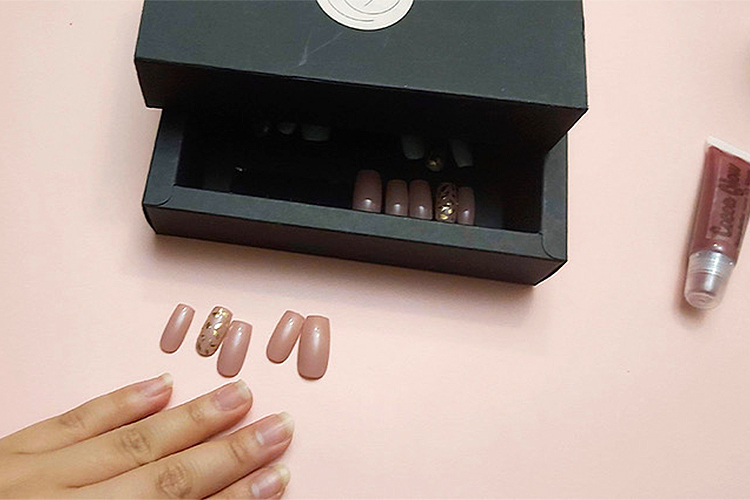
Jara-Elegado prepares to do her nails with a do-it-yourself press-on nail kit by small online beauty business in Toronto called PressedbyM. Photo by Alessia Proietti.
Some are questioning if these online beauty businesses will survive as stores reopen.
“There’s a thing called the lipstick effect. In times of stress, many consumers will purchase a lipstick just because it gives them some control over themselves,” says Darren Praznik, President and CEO of Cosmetics Alliance Canada.
The “lipstick effect” was coined by Leonard Lauder, former chairman of cosmetic company Estee Lauder, when he noticed an uptick in lipstick sales after the September 11 terrorist attacks.
Given that masks aren’t see-through, studies have shown that the effect moved to other cosmetics during the pandemic. In the United States, Amazon online sales for nail products increased 218 per cent in 2020. Hair products increased 172 per cent. And bath-and-body products went up 65 per cent.
Darren Praznik, Manitoba’s ex-Minister of Health, worries about the safety of homemade products.
“The problem with the little company is someone says, ‘I have a great idea’ and they do it, but they don’t do the checks,” Praznik says.
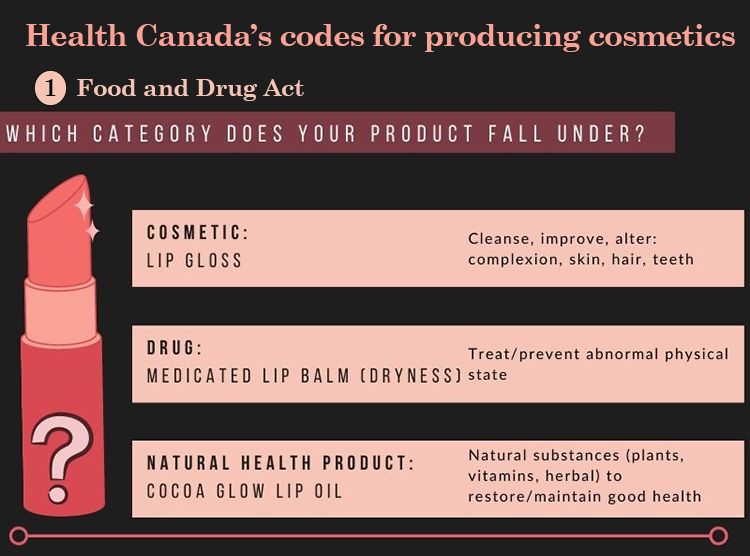
Small cosmetics businesses have to follow the same regulations as large businesses under Health Canada. Media by Alessia Proietti.
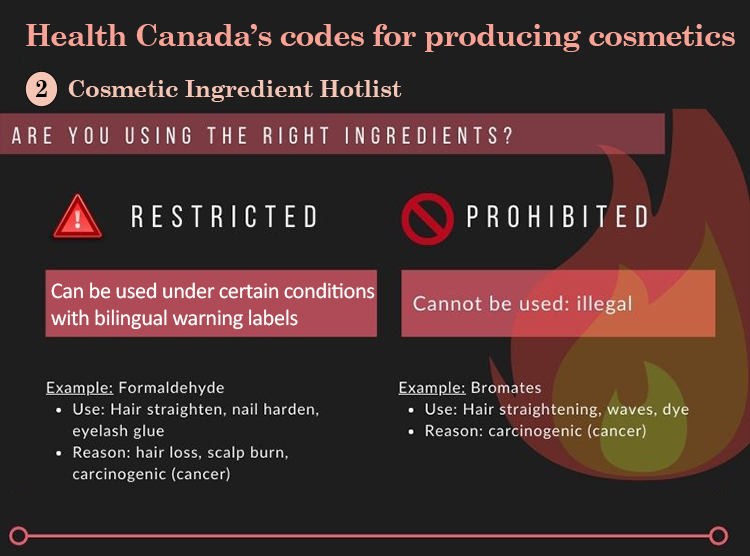
Small cosmetics businesses have to follow the same regulations as large businesses under Health Canada. Media by Alessia Proietti.
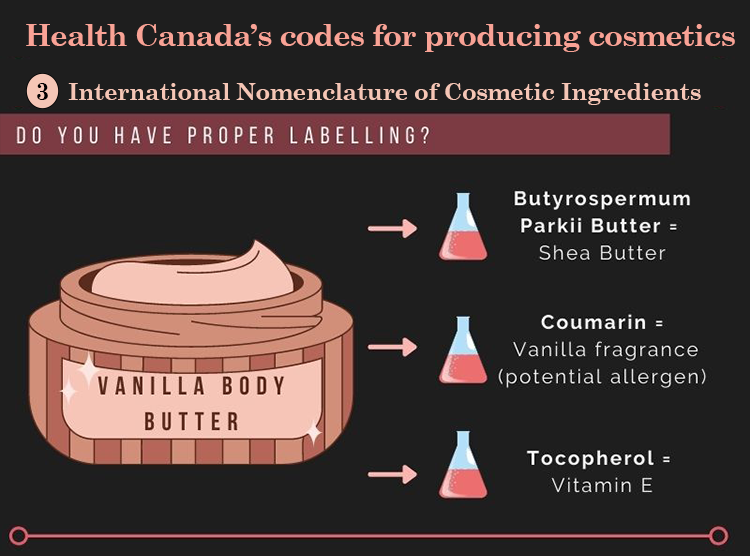
Small cosmetics businesses have to follow the same regulations as large businesses under Health Canada. Media by Alessia Proietti.
Many products from small online businesses are homemade using supplies bought off companies like Amazon or Alibaba, a Chinese e-commerce platform used by many manufacturers.
The onus of finding safe ingredients falls to the entrepreneurs. With Duprey studying biomedical technology, she and Telesford researched extensively for each ingredient. That research extended to storage temperatures, which affected their packaging choice.
“We were debating between fully black and translucent and we decided to go with black because we’re a Black-owned company but also because shea butter itself does not store well in light. So by hiding it from the light, we’re able to preserve it better,” Duprey says.
These small online beauty businesses are giving salon owners a run for their money, according to market analyst and business consultant Robert Soroka. Soroka says salons will have to give a reason for consumers to come back.
“[Salons] can diversify: what other benefits can you offer? For example, you may want to offer every customer that comes in an espresso, something to eat. It’s a value added that can’t be replicated at home,” he says.
For now, salons have been pivoting into the product industry, selling at-home kits and other cosmetics to their established client-base.
Due to the Covid-19 pandemic, salon owners must change their business model in order to survive the lockdowns and increasing competition from online businesses.
“Nobody would have thought a year ago that a salon would have been in competition with a do-it-yourself kit and as of now, they will be,” says Soroka.
In comparison to large name-brand cosmetics companies, he doesn’t see them as direct competitors.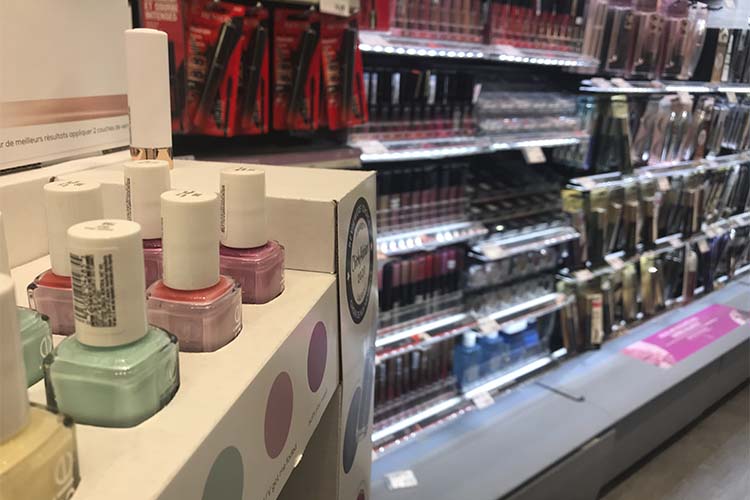
Large name-brand cosmetics companies fill two whole aisles in Pharmaprix Alexis Nihon alongside a separate cosmetics department called “Galeries Beauté”. Photo by Alessia Proietti.
“Large businesses want to capture consumers with a mass-marketing image. For a small mom-and-pop, you’re talking about building relationships, trust. You should be looking to build loyalty with a smaller group of people and it’s a slow build,” says Soroka.
But this brand positioning—the image that comes to the customer’s mind when they hear the company name—is something that small businesses struggle with, according to entrepreneur Nick Zappavigna MacIsaac.
“Millennials buy based on brand. For a lot of small businesses, they feel that’s outside of their grasp, and they don’t consciously build the brand that they want,” MacIsaac says.
Co-founder and strategy advisor for Advizee, a company that helps businesses work more efficiently through building their online presence, marketing, and other management related elements, MacIsaac believes many small online businesses are by “soletrepreneurs” (sole entrepreneurs) capitalizing on the pandemic by simply testing their business idea.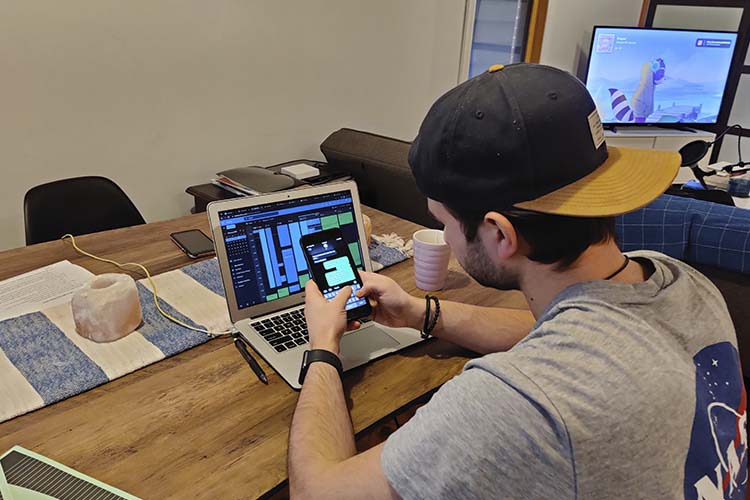
Nick Zappavinga MacIsaac works for his company Advizee from home. He estimates the attrition rate for small online businesses is 99%. Photo by Victoria Blair.
“It’s not something that we really thought about,” said Duprey when asked about their branding image. “We just want a product that’s good and that everyone would love to put on their skin.”
Some cosmetics customers share a similar opinion. Emma Gutwin-Hosat, a laboratory technician and avid cosmetics purchaser says, “I don’t buy for brands—I look at the product. And if I can help out a local business, then why not?”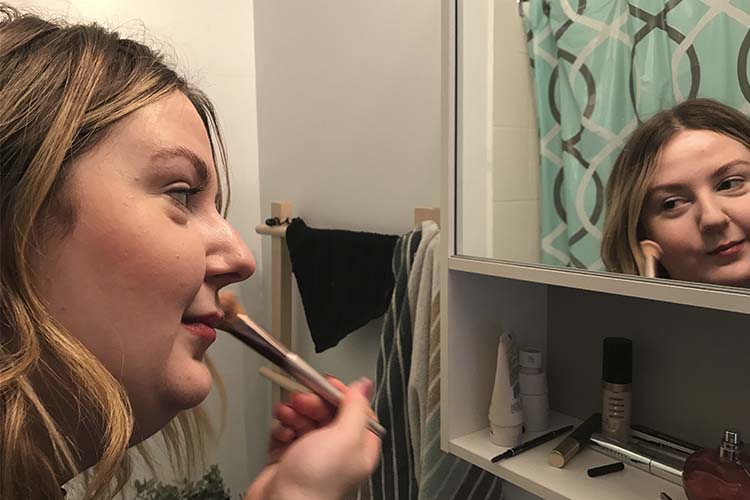
Emma Gutwin-Hosat does her morning makeup ritual before work. Today, she is using products from Cheekbone Beauty, an Indigenous-owned online beauty business in Ontario. Photo by Alessia Proietti.
For others, like Princess Jara-Elegado, the “soletrepreneur” is the brand.
A student in paralegal services, Jara-Elegado pays special attention in supporting and promoting small local businesses. She says they are unique in their personalization of products.
“They make you feel special. It’s customized, it has your name on it, they put cute little notes. You’re not only supporting the brand but you’re supporting a person,” Jara-Elegado says.
“One of our customers had an almond allergy so we went ahead and remade all the products for her without any almond oil to prevent her from having a reaction,” Duprey says.
For now, the cousins plan on continuing CocoaGlow as a side business and aren’t too worried about the competition from salons.
“For sure some people are going to be visiting their nail techs. But it’s really something where once you learn how to do it yourself, are you really going to go pay someone $50 for your nails when you can stay home and do them for $15,” Telesford asks.


